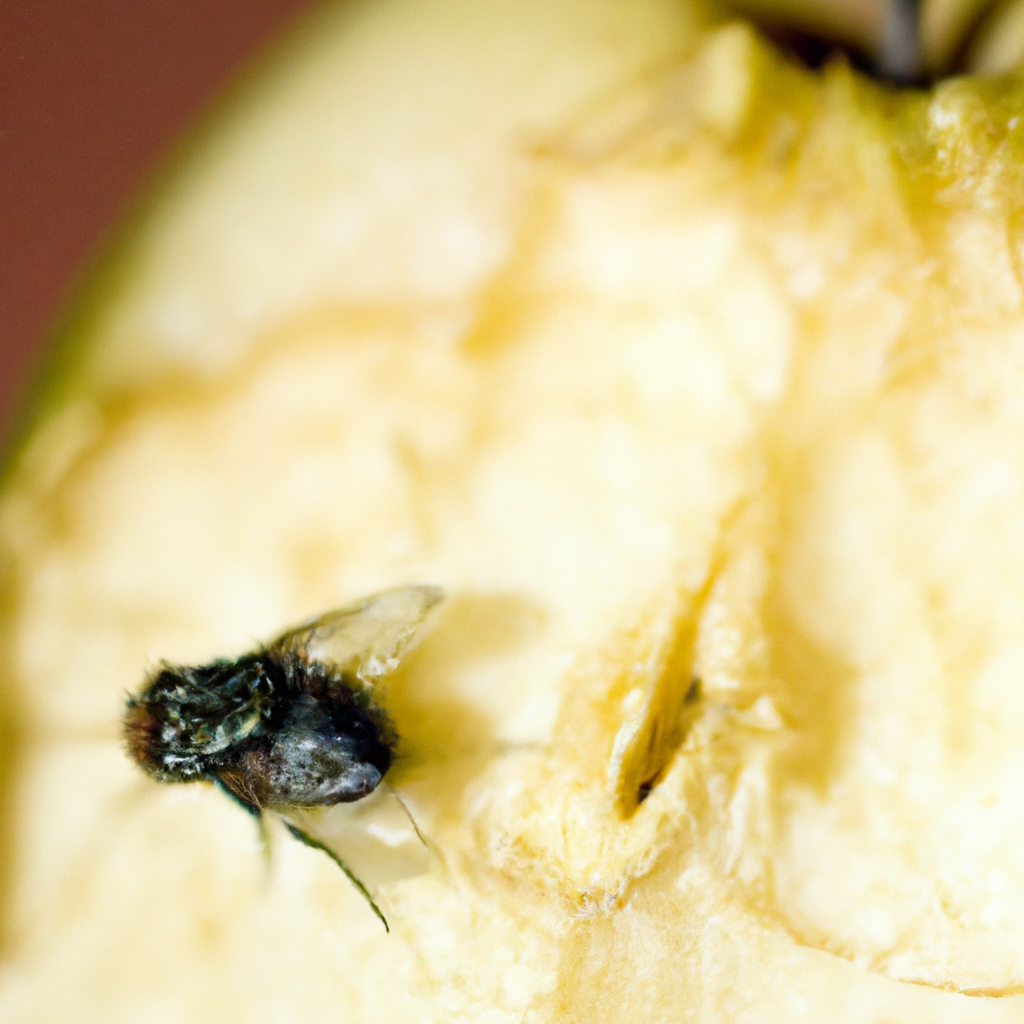You step into your kitchen, expecting to effortlessly whip up a tasty meal, when you are suddenly greeted by an unwelcome sight – a swarm of flies buzzing around your food preparation area. Puzzled and slightly disgusted, you wonder why your once clean and pristine kitchen has become infested with these pesky insects. In this article, we will unravel the mystery behind the sudden influx of flies in your kitchen and explore some effective solutions to reclaim your space from these unwanted visitors. So, let’s get to the bottom of this buzzing predicament and eliminate those pesky pests once and for all!
Common Reasons for Fly Infestations
Poor sanitation
One of the most common reasons for fly infestations in the kitchen is poor sanitation. Flies are attracted to filth and can easily find their way into your kitchen if it is not kept clean. Dirty countertops and floors, unclean dishes and utensils, and bad garbage management can all contribute to a fly-friendly environment.
Food sources
Flies are constantly on the lookout for food sources, and if your kitchen provides easy access to their favorite snacks, they will gladly make themselves at home. Exposed fruits and vegetables, spilled liquids and sugary substances, pet food and waste, uncovered or decaying food, and even compost piles can all attract flies and lead to infestations.
Standing water
Flies need water to survive, so any standing water in your kitchen can be a breeding ground for them. Leaking pipes and faucets, puddles, damp sponges and mops, and overwatered plants can all create the perfect environment for flies to lay their eggs and multiply.
Trash and waste
Trash and waste can be a major attractant for flies. Uncovered garbage bins, inadequate trash disposal, failure to remove rotting food, and trash buildup in and around the kitchen can all provide ample food and breeding opportunities for flies.
Unsealed windows and doors
Even the smallest gaps and cracks in windows and doors can serve as entry points for flies. Inadequate window screens, damaged door sweeps, and a lack of proper sealing can all make it easier for flies to enter your kitchen and start an infestation.
Identifying Fly Species
House flies
House flies are the most common type of fly found in kitchens. They are usually gray in color and have four dark stripes on their thorax. House flies are attracted to food and waste and can quickly multiply in unsanitary conditions.
Fruit flies
Fruit flies, as the name suggests, are commonly found hovering around ripe or decaying fruits. They are small, about an eighth of an inch in size, and have a tan or yellowish body. Fruit flies are attracted to sweet and fermented substances and can quickly infest your kitchen if fruits are left exposed.
Drain flies
Drain flies, also known as sewer gnats, are small flies with a wingspan of about one-eighth of an inch. They are typically black or dark brown in color and have long, prominent antennae. As their name implies, drain flies breed and thrive in moist areas such as drains, sewage pipes, and septic tanks.
Phorid flies
Phorid flies, often referred to as humpbacked flies, are similar in size to fruit flies but have a distinctive hump on their thorax. They are attracted to decaying organic matter and can be found in trash cans, compost piles, and sewage-contaminated areas.
Blow flies
Blow flies are larger than the previously mentioned fly species and can measure up to half an inch in length. They are metallic blue or green in color and are often associated with carcasses and animal waste. Blow flies are attracted to rotting meat and can pose a hygiene risk in the kitchen.
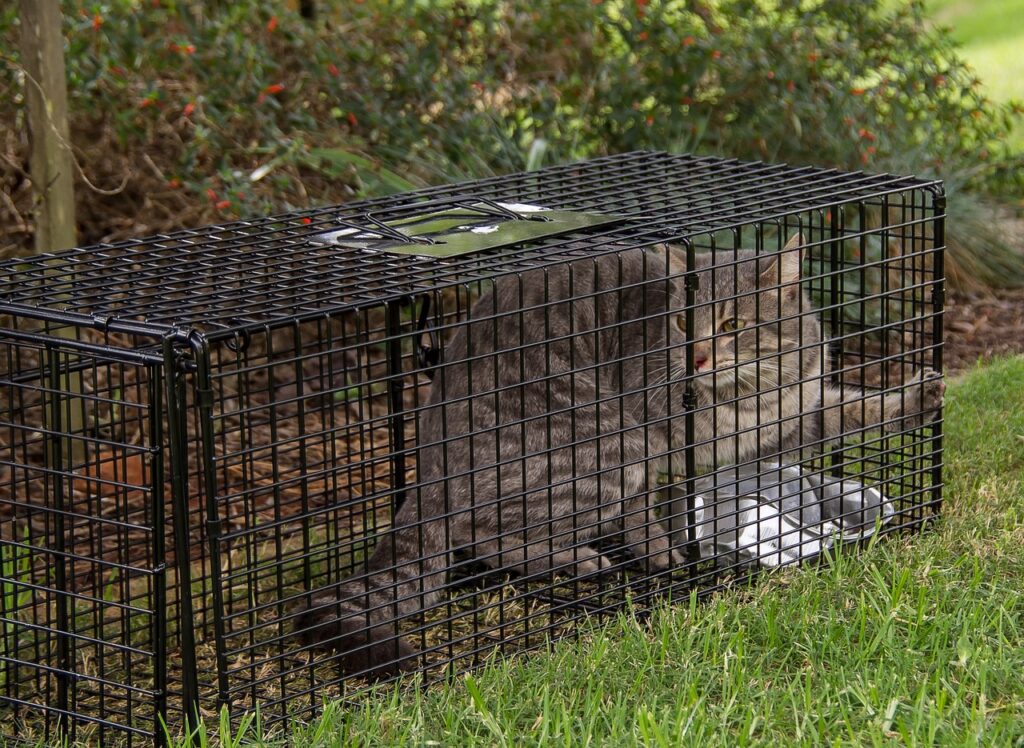
Signs of a Fly Infestation
Frequent sightings of adult flies
One of the most obvious signs of a fly infestation is the frequent presence of adult flies in your kitchen. If you find yourself constantly swatting flies or noticing them buzzing around, it’s a clear indication that there is an infestation.
Presence of fly eggs or larvae
Flies lay their eggs in suitable environments, which can include trash bins, decaying food, or damp areas. If you spot small white or translucent eggs or tiny maggots in any of these locations, it confirms the presence of a fly infestation.
Unpleasant odor
A strong, unpleasant odor in your kitchen can indicate a fly infestation. Flies are attracted to rotting organic matter, and their presence can contribute to a foul smell in the affected area.
Small dark spots on surfaces
Fly droppings, known as frass, can often leave small dark spots on surfaces in your kitchen. If you notice these spots on countertops, walls, or other areas, it suggests the presence of flies.
Excessive buzzing
If you find yourself constantly hearing the buzzing sound of flies, particularly when you are near potential food sources or breeding areas, it is likely that you have a fly infestation.
Poor Sanitation Practices
Dirty countertops and floors
Maintaining clean countertops and floors is crucial in preventing fly infestations. Regularly wipe down surfaces to remove any food residue or spills that may attract flies.
Unclean dishes and utensils
Leaving dirty dishes or utensils in the sink can be an open invitation for flies. Wash your dishes promptly after use and ensure that utensils are thoroughly cleaned.
Improper storage of food
Improperly stored food can easily attract flies. Make sure to store food items, especially perishables, in sealed containers or in the refrigerator to prevent flies from accessing them.
Bad garbage management
Properly managing and disposing of garbage is essential in preventing fly infestations. Ensure that garbage bins have lids and are kept tightly sealed. Regularly remove trash from your kitchen and dispose of it in outdoor bins away from your home.
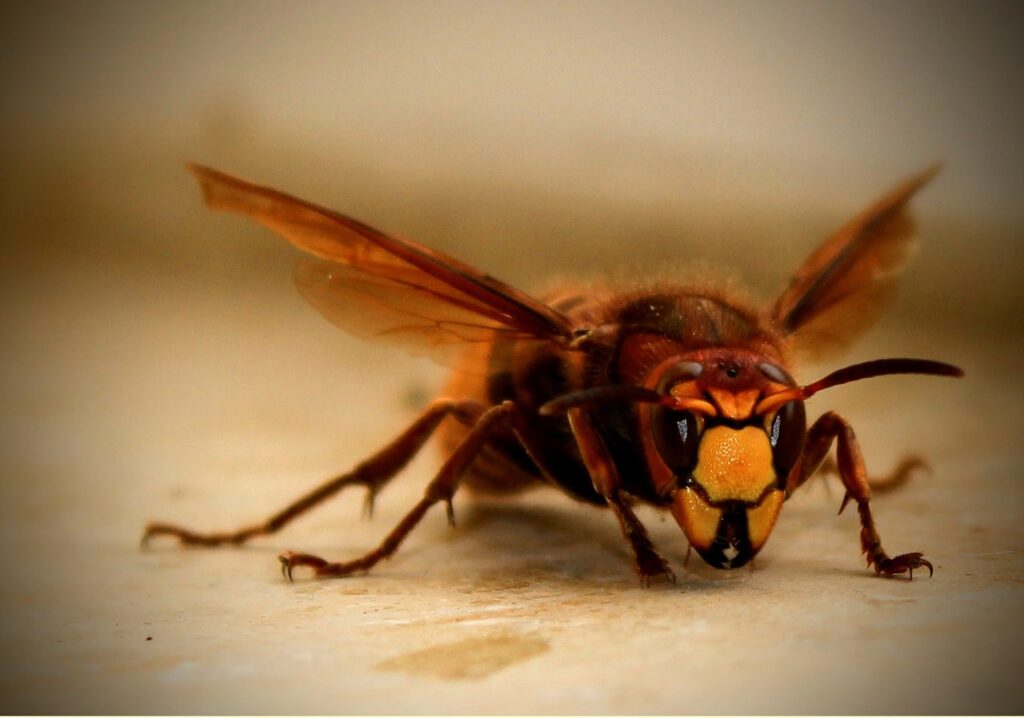
Attractive Food Sources for Flies
Exposed fruits and vegetables
Leaving fruits and vegetables exposed on countertops or in fruit bowls can attract fruit flies. Store them in the refrigerator or in sealed containers to deter flies.
Spilled liquids and sugary substances
Spills of sugary substances, such as juices or soda, can be highly attractive to flies. Clean up spills promptly and wipe down surfaces to eliminate their scent and the temptation for flies.
Pet food and waste
Pet food and waste can also be a food source for flies. Make sure to clean up any spilled pet food and promptly remove pet waste from your kitchen or yard to prevent flies from being attracted to it.
Uncovered or decaying food
Leaving uncovered or decaying food in your kitchen is an open invitation for flies. It’s important to properly store leftovers, discard expired food, and promptly clean up any spills or food debris.
Compost piles
If you have a compost pile in your yard, it may attract flies if not properly managed. Ensure that the compost pile is covered and turned regularly to prevent fly infestations.
The Role of Standing Water
Leaking pipes and faucets
Leaking pipes and faucets provide a constant source of standing water for flies. Regularly check and repair any leaks to eliminate this attractive breeding environment.
Puddles
Puddles of water in your kitchen, whether from spills or leaks, can be breeding grounds for flies. Promptly clean up any spills and address the underlying cause of the puddles to prevent fly infestations.
Damp sponges and mops
Moist sponges and mops can become ideal locations for fly eggs and larvae to thrive. Allow them to dry thoroughly between uses or replace them with fresh ones to prevent flies from being attracted.
Overwatered plants
Overwatering plants in your kitchen or nearby areas can create excess moisture, attracting flies. Use proper watering techniques to avoid soil saturation and remove any standing water in plant saucers.
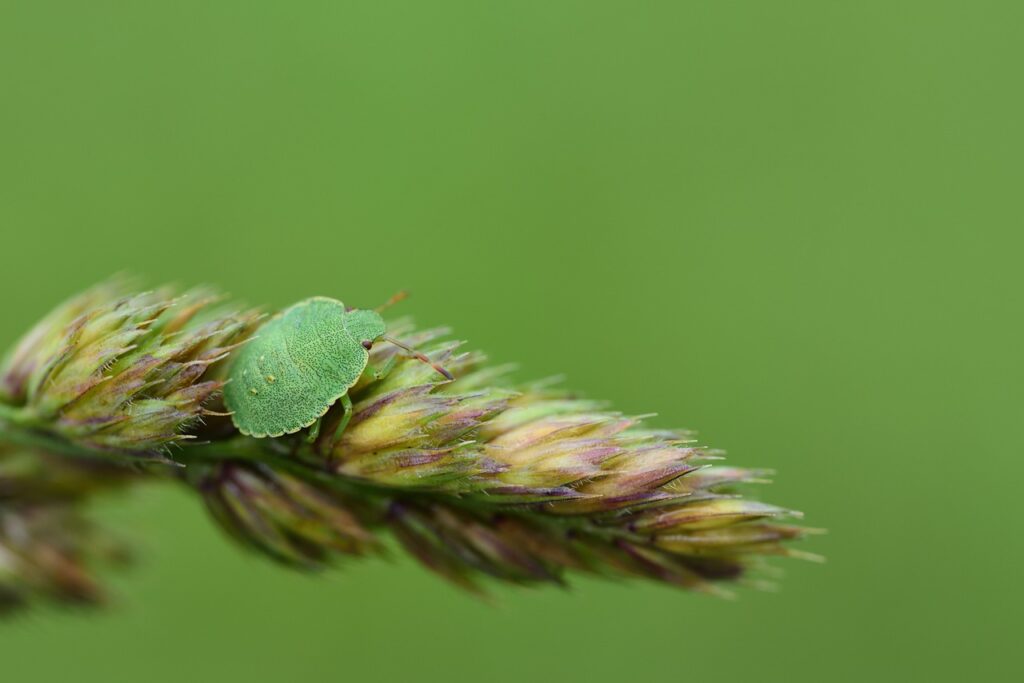
Trash and Waste Management
Uncovered garbage bins
Uncovered garbage bins provide easy access for flies seeking food sources and breeding grounds. Ensure that your garbage bins have tightly fitting lids to prevent flies from entering and laying eggs.
Inadequate trash disposal
Improperly disposing of trash, such as leaving bags or containers open, can attract flies. Make sure to seal trash bags tightly and promptly transfer them to outdoor bins.
Non-removal of rotting food
Allowing rotting food to remain in your kitchen can become a haven for flies. Regularly check for and remove any spoiled or expired food to prevent fly infestations.
Trash buildup in and around the kitchen
Accumulation of trash in and around the kitchen can attract flies. Keep the kitchen area clean and ensure that outdoor garbage bins are regularly emptied to discourage flies from breeding and infesting your kitchen.
Unsealed Windows and Doors
Gaps and cracks in window frames
Gaps and cracks in window frames provide entry points for flies. Inspect your window frames and fill any openings with caulk or other suitable sealants to prevent flies from entering your kitchen.
Inadequate window screens
If your windows have damaged or missing screens, flies can easily enter your kitchen. Repair or replace any damaged screens to create a barrier against flies.
Damaged door sweeps
Damaged door sweeps can create gaps that flies can exploit to enter your kitchen. Ensure that the door sweeps are intact and in good condition, preventing flies from accessing your home.
Lack of proper sealing
A lack of proper sealing around doors can also allow flies to enter your kitchen. Apply weatherstripping or other sealants to close gaps and prevent flies from infiltrating your home.
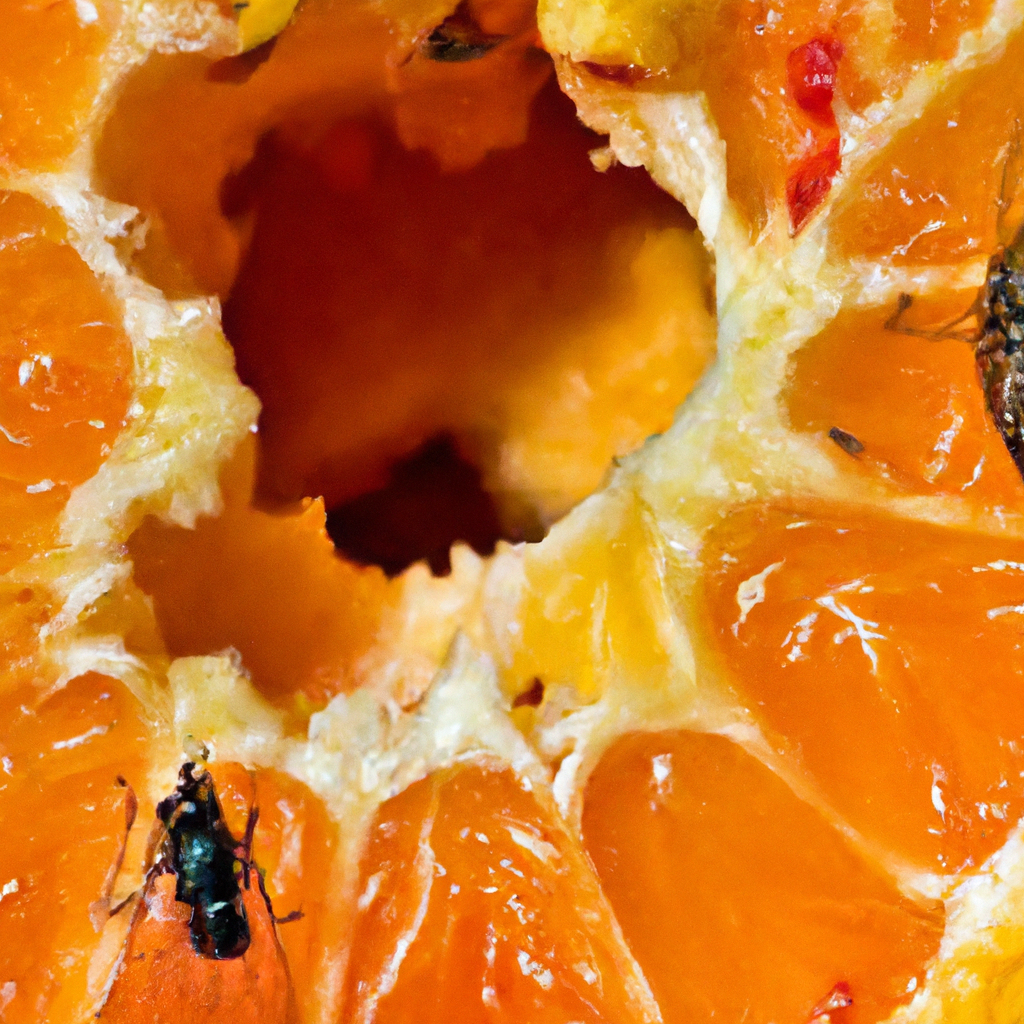
Preventing and Controlling Fly Infestations
Maintaining clean surfaces
Regularly clean and sanitize your kitchen countertops, floors, and other surfaces to eliminate any food residue or spills that may attract flies. Wipe down surfaces frequently to deter flies from lingering.
Proper food storage
Store food items, especially perishables, in sealed containers or in the refrigerator to make them less accessible to flies. Keep your pantry organized and discard expired or spoiled food promptly.
Regular garbage disposal
Dispose of garbage regularly and ensure that your garbage bins have tightly fitting lids. Keep outdoor bins away from doors and windows to prevent flies from being attracted to your home.
Eliminating standing water
Regularly check for and address any sources of standing water in your kitchen or nearby areas. Repair leaks, dry up puddles, and properly maintain sponges and mops to discourage fly breeding.
Sealing windows and doors
Inspect your windows and doors for gaps and cracks that may serve as entry points for flies. Seal any openings using caulk or other suitable sealants to create a barrier against flies.
When to Seek Professional Help
Persistent infestations
If you have tried various preventive measures and the fly infestation persists, it may be time to seek professional help. A pest control expert can assess the situation and implement more effective methods to eliminate the infestation.
Large fly populations
If you notice a sudden increase in the number of flies in your kitchen or surrounding areas, it could indicate a significant infestation. Professional assistance may be necessary to effectively control the population.
Difficulty in locating breeding sites
Flies are often drawn to hidden or hard-to-reach breeding sites, such as drains or sewage pipes. If you are having difficulty locating and eliminating these areas, a professional pest control service can help identify and treat the problem.
Recurring fly problems
If you have experienced fly infestations in the past and they keep reoccurring despite your efforts to prevent them, professional intervention may be required. A pest control expert can provide long-term solutions to ensure that the infestations do not persist.
In conclusion, fly infestations in the kitchen can be caused by poor sanitation, easily accessible food sources, standing water, improper trash and waste management, and unsealed windows and doors. By identifying the different fly species and recognizing the signs of infestation, you can take appropriate measures to prevent and control fly infestations. Maintaining good sanitation practices, properly storing food, disposing of garbage regularly, eliminating standing water, and sealing windows and doors are all effective ways to deter flies from making your kitchen their home. However, if infestations persist or become overwhelming, seeking professional help is recommended to ensure thorough elimination and long-term prevention.
